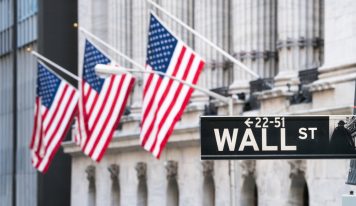In my career I have never seen so many attacks on a single company coming from the same source. A while back the New York Times “broke” a story that Chinese workers assembling iDevices and working for Hon Hai/Foxconn in China aren’t treated as well as workers in the US. And this actually became “news.” Does anyone think anything manufactured in China is made with workplace conditions similar to the US or many parts of Europe?
Moreover, where were the high and mighty journalists when Foxconn was making products for pretty much every other consumer electronics company of size?
Now it is onto how much Apple pays in taxes – there was what you might want to call a “hit piece” on Apple this weekend discussing how the company pays a small share of taxes and is able to use the fact that it sells virtual goods such as music to move revenue to jurisdictions which charge little to no taxes.
Here is an excerpt:
Apple, for instance, was among the first tech companies to designate overseas salespeople in high-tax countries in a manner that allowed them to sell on behalf of low-tax subsidiaries on other continents, sidestepping income taxes, according to former executives. Apple was a pioneer of an accounting technique known as the “Double Irish With a Dutch Sandwich,” which reduces taxes by routing profits through Irish subsidiaries and the Netherlands and then to the Caribbean. Today, that tactic is used by hundreds of other corporations — some of which directly imitated Apple’s methods, say accountants at those companies.
Without such tactics, Apple’s federal tax bill in the United States most likely would have been $2.4 billion higher last year, according to a recent study by a former Treasury Department economist, Martin A. Sullivan. As it stands, the company paid cash taxes of $3.3 billion around the world on its reported profits of $34.2 billion last year, a tax rate of 9.8 percent. (Apple does not disclose what portion of those payments was in the United States, or what portion is assigned to previous or future years.)
By comparison, Wal-Mart last year paid worldwide cash taxes of $5.9 billion on its booked profits of $24.4 billion, a tax rate of 24 percent, which is about average for non-tech companies.
None of this is news – companies routinely look to minimize taxes – some like GE for example have paid little to no taxes and have huge departments looking to pay as little as possible.
If we explore the reason companies are in business the primary reason has to be “to make a profit.” You might even say it is to make as much profit as possible – legally of course. Part of this mission in fact means looking to minimize payments for everything from raw materials to rent. Taxes are no different.
In fact if you do something to minimize profit you risk a shareholder lawsuit – and if you lose the shareholder lawsuit you put your company at risk and definitely have less money left over to pay taxes.
The point here is the New York Times seems to be on a mission to tarnish Apple.
And I might add I am no Apple fanboy – I was responsible for installing desktop publishing here at TMC in the eighties and intentionally avoided Apple because the company had no future in my opinion. The cost/performance curve of the PC market was much better and moreover I was able to save the company tremendous money by building the computers we used myself. And at the time, this was no easy task – fonts were an issue, Xerox Venturi Publisher stunk and the memory allocation of PCs at the time made life difficult – thankfully we had memory management products from Quarterdeck to ease the pain.
But now I am an Apple user – I also use PCs mind you but Apple is setting the tone in tech and is the company to follow.
But if you consider the New York Times to be the liberal newspaper of record and one of the liberal talking points is that large corporations are bad, don’t pay their fair share, etc. then going after Apple repeatedly makes sense.
Again, I am not taking issue with the accuracy of reporting just that Apple is doing things which many other companies also do. It’s also worth pointing out that even if Apple started to use complex tax-dodging strategies before others in Silicon Valley it is because of the age of of the company.
Point being, there is nothing to see here. Apple, like many other companies manufactures in China where working conditions are poor and moreover the company pays little in taxes and maximizes profits for its shareholders. You would think this is a good thing.
One final point worth making which was mentioned on CNBC early this morning by Joe Kernan is that the New York Times often makes conclusions in its articles and this particular piece seemed to be a great opportunity to push for lower corporate taxes in the US. After all, if capital flows to the jurisdiction with the lowest tax rates then what on earth does the US gain by having the highest tax rates in the world? The answer is nothing and as the liberal paper of record, the omission of the obvious conclusion was certainly not a surprise to many.
In fairness, the Times did have an article on GE’s tax avoidance strategies. Here is an excerpt:
Its extraordinary success is based on an aggressive strategy that mixes fierce lobbying for tax breaks and innovative accounting that enables it to concentrate its profits offshore. G.E.’s giant tax department, led by a bow-tied former official named John Samuels, is often referred to as the world’s best tax law firm. Indeed, the company’s slogan “Imagination at Work” fits this department well. The team includes former officials not just from the Treasury, but also from the I.R.S. and virtually all the tax-writing committees in Congress.





